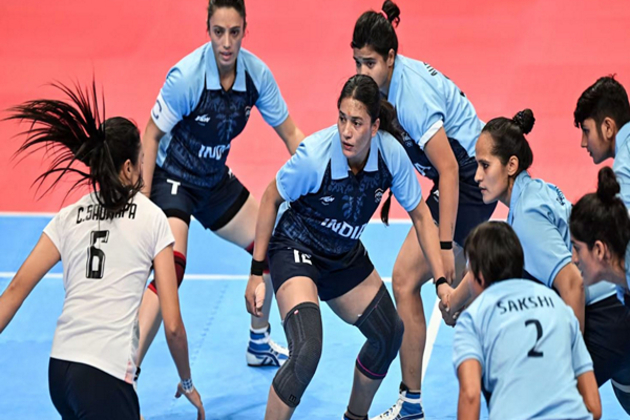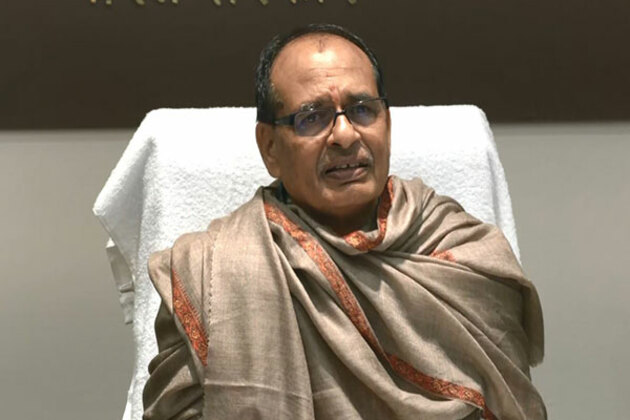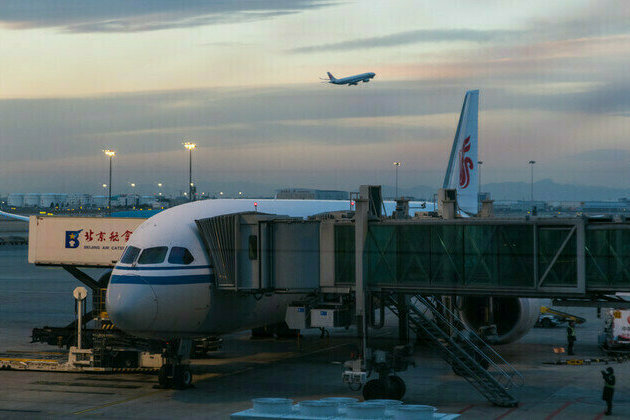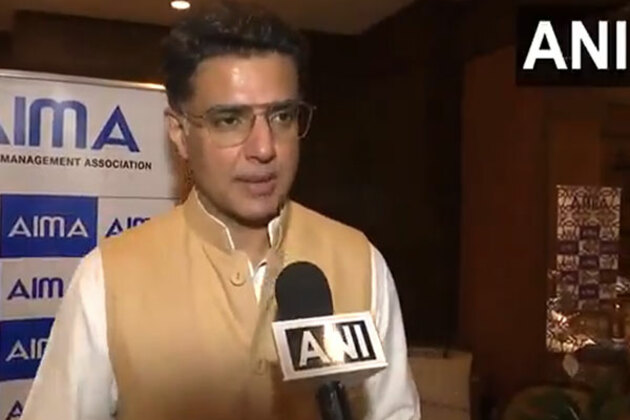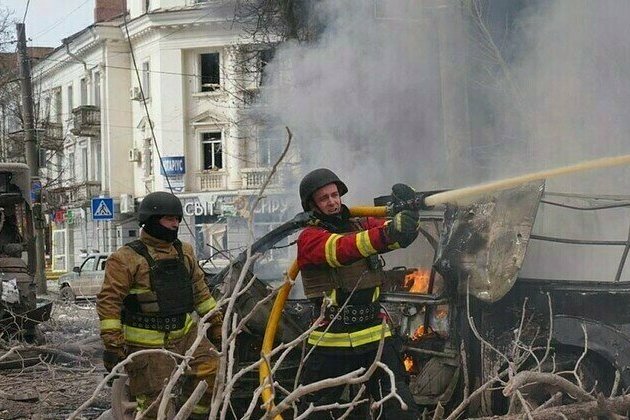'Cross-border commuters': the women who risk the dangerous crossing between Venezuela and Colombia each day
The Conversation
14 Apr 2025, 13:50 GMT+10
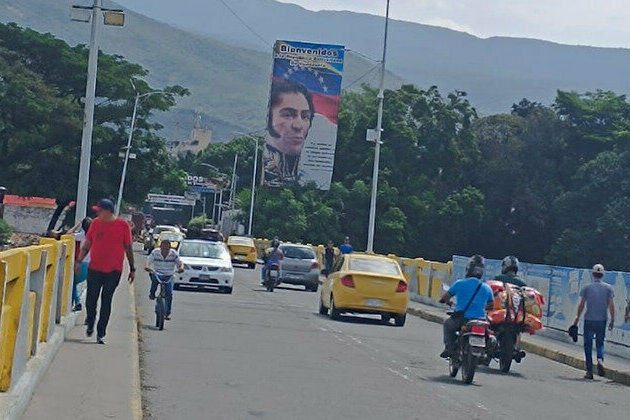
Many people cross the border between Venezuela and Colombia each day - but they are not migrants. These people live on the Venezuelan side because they cannot afford rent or utilities in Colombia.
The vast majority are women, many of whom are single mothers solely responsible for their children's subsistence and care. They cross the border on foot, often with their children, because it is their only option for survival.
High inflation in Venezuela has made many staples unaffordable, while many other essential items are either unavailable or poor quality. But rent is cheaper in their home country, so they are known as "cross-border commuters".
Because they are moving within the border zone, the law does not require them to have their passports stamped each time. On the Colombian side, they buy goods - products that are cheaper there - to sell in Venezuela. They find ingredients to make cakes and pastries, or hair dye for their clients. Others cross to attend the doctor or give birth.
Some women take their children to school in Colombia. In Venezuela, public schools currently operate only two days a week, while across the border they run for the full five-day school week and welcome children from Venezuela. Some women used to take their little ones to nursery in Colombia - but not any more, since the recent USAID cuts removed funding for these nurseries.
In the few hours without their children, the women find work in Colombia's "gig economy": recycling garbage, selling coffee, standing at traffic lights selling fried plantains, or even their bodies.
When I asked a public official in the Colombian border city of Ccuta about the women coming in from Venezuela each day, he told me: "The good ones cross over the bridge [legally], and the bad ones go underneath [bypassing border controls]."
In fact, what brings these women into Colombia, and which route they use to arrive each day, is much more nuanced than that official suggests.
Despite the Colombian government having set up education, health and employment programs for receiving and including Venezuelan migrants, these women are not traditional migrants. Neither government has much understanding of what it means for them to seek a livelihood in Colombia to survive and support their children.
For the most part, neither government maintains updated statistics on how many women there are, the circumstances they face, why they cross over or under the bridge, the reasons or characteristics of their movements, and why they do not settle permanently in Colombia. These questions, among others, are what I have set out to research.
Some women walk back and forth across one of the bridges over the Tachira river, which runs along the border between the two countries. Others, when returning to Venezuela carrying bundles of goods, cross on motorcycle taxis.
But crossing the bridge is not always easy. Some women report that Venezuelan border guards search their bags and confiscate part of what they carry. Other times, they must pay - not just official taxes but bribes too.
One woman told me how a guard asked for guava-paste sweets in exchange for letting her pass. Depending on the day and which guards are patrolling the crossing, often they have to present a legally required exit permit for their children, signed by the father. "What father? That man abandoned me when my child was born, and I haven't heard from him since," one woman told me.
Without a permit, legally crossing the border into Colombia with their children becomes almost impossible. And there is no authority they can turn to for help.
Then there are those who cross under the bridge every day, because they dare not risk being asked for a permit for their children.
The Tachira river dries up and swells depending on the season, with multiple informal crossings known locally as "trochas". When the river is low, people walk across on logs placed like makeshift bridges, or hop from stone to stone. When the water rises, they use small, self-built rafts.
These crossings may be informal, but they can also be very dangerous. The women told me of clashes between armed groups on both sides of the river - some of them had been caught in the crossfire with their children in tow.
Others described cases of sexual violence. They were particularly afraid for their daughters, because one of the men guarding the trocha may "set his sights on them" - meaning he might take a sexual interest.
One woman told me cell phones are not allowed by the people who guard the trochas - who supposedly guarantee their safety. It adds to their sense of vulnerability. People generally pay to cross - if not with money then with their bodies. These are the unspoken rules of these pathways.
As a result, every day the women fear for their safety and that of their children. But if something happens to them in the trochas, they mistrust the government and fear reporting these crimes.
The women are vulnerable. They are neither "good" for crossing over the bridge, nor "bad" for crossing under it. Most make the decision on a day-to-day basis depending on their resources and time available, the papers they have, the goods they need to carry, and what they consider best for their children.
As they say in Colombia, for these mothers "each day brings its own hustle".
 Share
Share
 Tweet
Tweet
 Share
Share
 Flip
Flip
 Email
Email
Watch latest videos
Subscribe and Follow
Get a daily dose of Mexico City Sun news through our daily email, its complimentary and keeps you fully up to date with world and business news as well.
News RELEASES
Publish news of your business, community or sports group, personnel appointments, major event and more by submitting a news release to Mexico City Sun.
More InformationSouth America
SectionRajgir to host second Women's Kabaddi World Cup in June
New Delhi [India], April 15 (ANI): The Women's Kabaddi World Cup 2025 will be held from June 1 to 10 in Rajgir, Bihar, confirmed the...
Shivraj Singh Chouhan to attend 15th BRICS Agriculture Ministers meeting in Brazil
New Delhi [India], April 15 (ANI): Shivraj Singh Chouhan, Union Minister for Agriculture and Farmers' Welfare and Rural Development,...
India can become world's second largest iron ore producer surpassing China and Brazil: Vedanta Chairman
New Delhi [India], April 15 (ANI): India has the full potential to overtake Brazil and China in iron ore production and become the...
Second leg of ISSF's South American swing set to begin in Lima
Lima [Peru], April 14 (ANI): The second-leg of the International Shooting Sport Federation (ISSF) World Cup Rifle/Pistol/Shotgun stage,...
Ecuador: can freshly re-elected Daniel Noboa govern a country in crisis?
Daniel Noboa has been re-elected as president of Ecuador with a margin that has surprised most observers. Just weeks before the April...
India wraps up Archery World Cup 2025 in Auburndale with four medals
Auburndale [USA], April 14 (ANI): India concluded their campaign at the Archery World Cup 2025 Stage 1 in Auburndale, USA, with a total...
World
SectionChina orders its airlines to dump Boeing Bloomberg
The trade war with the US has led to the cost of jets and parts from the aerospace giant to more than double for Chinese carriers ...
"India stands to lose a lot": Congress leader Sachin Pilot calls for a nuanced trade policy ahead of global tariff shifts
New Delhi [India], April 15 (ANI): Congress leader Sachin Pilot on Tuesday emphasised the need for India to adopt a carefully curated...
Olympic Champion Dalilah Muhammad named international event ambassador for TCS World 10K Bengaluru 2025
Bengaluru (Karnataka) [India], April 15 (ANI): Dalilah Muhammad, lauded as one of the most accomplished hurdlers in history, has been...
US blocks G7 condemnation of Russia over Sumy strike Bloomberg
Moscow has said the missile attack targeted senior Ukrainian and foreign military officers US President Donald Trump's administration...
Details of Irans nuclear demands revealed media
Tehran is reportedly willing to provide guarantees that its atomic program is non-military in exchange for sanctions relief Iran...
Trade disengagement risks isolation and conflicts, says CEO of UKNCC
People talk at the Britain pavilion during the 5th China International Consumer Products Expo (CICPE) in Haikou, south China's Hainan...

